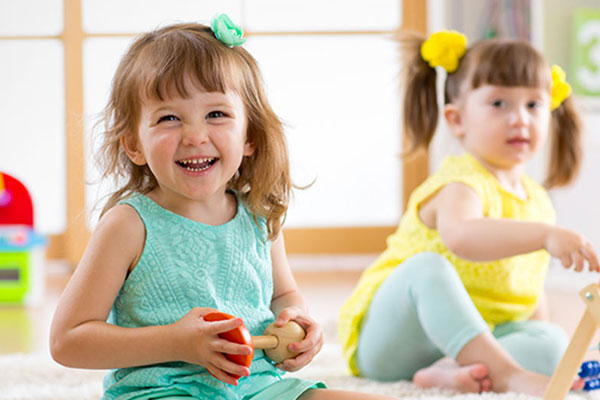
Play is one of the most often overlooked, yet critical, parts of childhood learning that should remain a priority as research and experience show the importance of play. Local educational preschool, Kids ‘R’ Kids Learning Academy of Circa / FishHawk shares on the science of play, why it’s important, and how the classroom environment can be set up to maximize this opportunity.
The Science Behind Play-Based Learning
Play as a tool for learning has been shown to have a profound, long-lasting impact of the development and learning of students. This is because children learn well when they are mentally stimulated and engaged in a social environment where there are meaningful connection and interaction with the subject matter. Neuroscientists have found that play activates the brain in ways that other teaching techniques are not.
In general, people of all ages tend to learn well when they take an active role in the learning environment, are engaged with meaningful information and interact during the learning experience with others. Play-based learning in a pre-k environment facilitates these requirements.
Additionally, play is an essential component of development for children offering a source of fun and social interaction as well as facilitating the emergence and strengthening of intellectual, physical, social, and emotional abilities. Children tend to test out newly acquired knowledge and ideas in the context of play, re-enacting scenarios to further solidify their understanding. It’s also how children tell stories, negotiate with others, and problem-solve.
Just Because It’s Play-Based, Doesn’t Mean It’s Not Real
Previous generations of thought-leaders were quick to dismiss the benefits of play, deeming it a frivolous waste of classroom time. But, more and more, teachers are learning that it is critical for the development of children. It fosters and promotes creativity and, when done right, can be more impactful than traditional teaching methodologies.
Purposeful play can be constructed and guided by a teacher to create deeper learning experiences that a child will be more likely to remember and internalize. The key is the creative development of hands-on learning activities that have intentionality behind them. So, while there is certainly a place for worksheets that showcase a child’s learning, there should be space for a less rigid approach.
At the kindergarten level, when children are playing, they are doing their deepest learning which is much more effective than having children fill out worksheets.
A Classroom Environment That Contributes to Learning
Play-based learning utilizes the classroom in the teaching process, where the teacher becomes the guide. Each activity and object in the learning space has a specific purpose, will contribute to the process and will help facilitate a deeper learning experience for each child. To this end, there will often be different areas that facilitate art, science, reading and more. In this environment there is space for children to ask questions, learn through conversation, and solidify understanding of different, interrelated concepts.
Kids ‘R’ Kids Learning Academy of Circa / FishHawk offers a diverse, rich learning environment for children from the age of six weeks through to four years old. For children who attend local elementary school and are between the ages of five and twelve, they also offer before and after school programs through to the fifth grade.
They understand the importance of play in allowing children to use their innate creativity and curiosity, focusing on developing their imagination, as well as their physical and emotional strength. They aim to create a space for children to learn to work with others, sharing and negotiating, and resolving conflict, as well as learning self-advocacy skills.
At Kids ‘R’ Kids Learning Academy, the needs of each child are put first, and family involvement and a parent-teacher approach is encouraged.
The post How Pre-K Age Children Learn Through Play appeared first on Circa Fishhawk.
First Published on: Blog – Circa Fishhawk https://kidsrkids.com/circa-fishhawk/pre-k/how-pre-k-age-children-learn-through-play/
No comments:
Post a Comment